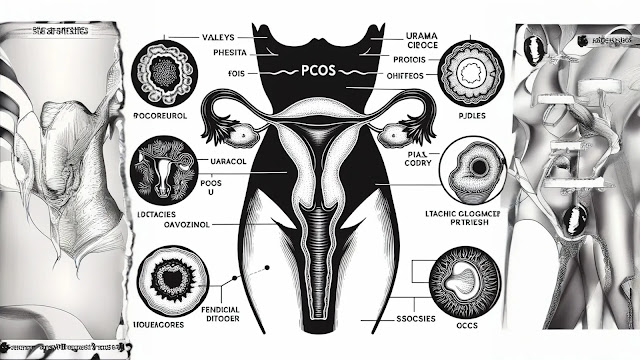Demystifying PCOS: What It Is and How It Affects Women
Polycystic Ovary Syndrome (PCOS) is a common hormonal condition affecting roughly 1 in 10 women of childbearing age. While the name might sound intimidating, understanding what PCOS is and its impact can empower women to manage their health effectively.
What is PCOS?
PCOS disrupts a woman’s hormonal balance, primarily affecting the ovaries.
This imbalance leads to:
Excess Androgen Production: Androgens are typically male hormones in small amounts in women. In PCOS, their levels become elevated, leading to various symptoms.
Impaired Egg Maturation: Eggs struggle to mature and be released (ovulate) from the ovaries, causing irregular or absent periods.
Key Symptoms of PCOS:
Irregular Periods: This is the most common symptom, with periods being infrequent, erratic, or absent.
Excess Hair Growth: Androgen excess can lead to unwanted hair growth on the face, chest, or abdomen.
Acne: Androgen activity can also trigger acne breakouts.
Weight Gain and Difficulty Losing Weight: PCOS can make weight management challenging.
Infertility: Irregular ovulation can make it difficult to conceive naturally.
Beyond the Basics:
While these are the core symptoms, PCOS can also increase the risk of developing:
Type 2 Diabetes: PCOS can affect insulin sensitivity, raising the risk of diabetes.
High Blood Pressure: Increased risk of developing high blood pressure, which can strain the heart.
Heart Disease: The combination of PCOS and other risk factors like diabetes can elevate the risk of heart disease.
Endometrial Cancer: The thickened uterine lining due to irregular ovulation can slightly increase the risk of this cancer.
Living with PCOS:
While there’s no single cure for PCOS, various management strategies can help control symptoms and improve overall health:
Lifestyle Changes: A healthy diet, regular exercise, and weight management can significantly improve symptoms and reduce long-term health risks.
Hormonal Regulation: Medications like birth control pills can regulate menstrual cycles, reduce androgen levels, and improve acne.
Ovulation Induction: Medications can help stimulate ovulation for women trying to conceive.
Managing Individual Needs: Treatment plans are personalized based on individual symptoms and goals, like managing irregular periods or fertility concerns.
Remember:
Early diagnosis and proper management are crucial for reducing long-term health risks associated with PCOS.
PCOS affects every woman differently. Seeking professional advice allows for personalized treatment plans and support.
Numerous resources and communities are available to provide information, empower, and connect women with PCOS.

